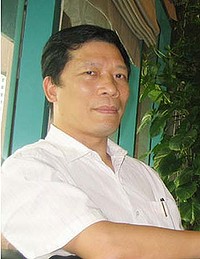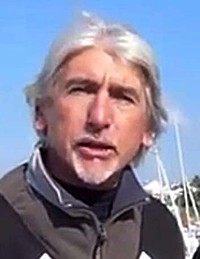AUSTRALIAN trade officials met or spoke with a colonel from a Vietnamese spy agency 18 times before suggesting to a Reserve Bank currency firm that it hire him as an agent in an arrangement that is now expected to lead to more corruption charges as part of the nation’s biggest bribery probe.
The Age can also reveal that the federal police investigated an Austrade commissioner, who is still serving in Asia, after uncovering information about Austrade’s role in assisting banknote firm Securency International provide overseas travel for Vietnamese officials.
The revelation of Austrade’s intimate role in Securency’s allegedly corrupt Vietnam dealings comes just hours after German police swooped on a former senior sales executive from Note Printing Australia (NPA), the second RBA banknote company accused of bribing overseas officials.
The dramatic weekend arrest of Christian Boilott over his alleged role in a conspiracy to bribe overseas officials while working for NPA came just before his yacht was to sail in a contest in Boltenhagen, in Germany.
Mr Boilott, whom Australian authorities will seek to extradite, is the ninth man to be charged around the globe for an alleged role in the banknote companies’ bribery scandal, with six Victorians and two Malaysians arrested on Friday.
The Vietnamese colonel also suspected of playing a key role in a bribery scheme allegedly driven by Reserve Bank companies Securency and NPA is yet to be questioned by Vietnamese authorities, who have so far declined to assist Australia in the global inquiry.


Vietnamese spy Colonel Anh Ngoc Luong & Christian Boillot, the ninth person arrested
Former Australian diplomatic and trade officials have privately confirmed that Securency agent Anh Ngoc Luong’s status as a colonel in Vietnam’s spy agency, the Ministry of Public Security, was well known to the Australian embassy in Hanoi when Austrade suggested Securency appoint him and his company, CFTD, as its agent in 2002.
Information released by Austrade and the Department of Foreign Affairs to Liberal senator Russell Trood shows that Australian officials in Hanoi met or spoke to Luong 18 times between 1999 and 2001.
It is illegal for an Australian company to hire a foreign official as its paid agent, and Luong’s appointment is suspected to have begun one of the highest paying bribery arrangements that Securency set up across the globe, paying the colonel up to $20 million, much of it in suspected bribes.
In return, he helped Securency win a massive contract to switch Vietnam’s banknotes from paper to plastic.
Australian embassy staff in Hanoi continued to have close dealings, including intimate dinners, with Colonel Luong even after an Austrade commissioner formally warned Canberra and the RBA in 2007 and 2008 that he was a high-ranking Ministry of Public Security officer. The ministry is Vietnam’s internal security and counter-espionage agency.
This information was also made available to the Securency board at that time. The board did not ask Securency management to end its arrangement with Colonel Luong.
The Austrade commissioner investigated by the AFP over Securency’s Vietnam dealings is understood to have helped arrange visas for Vietnamese officials to enter the United States on a brief Securency-funded holiday.
The Austrade official has not been charged. Other Austrade officials have also given statements to the AFP.
The revelation of Austrade’s intimate involvement with Securency’s Vietnam affairs is likely to increase pressure on the Gillard government to agree with a push by Greens leader Bob Brown for a parliamentary inquiry into the roles of the trade agency and the RBA in the bribery scandal.
A senior federal government official has told The Age that if an inquiry was held into Austrade’s relationship with Securency and Note Printing Australia ”it would emerge that the Australian government has sanctioned and engaged in corruption”.
A high-ranking Austrade manager has separately told The Age that ”in the case of Securency … there is no doubt as to Austrade’s complicity as the agency not only made the introductions to CFTD but advised on how to deal with them”.
The RBA owns half of Securency and all of NPA. During the period of the alleged bribery, both companies were chaired by former deputy RBA governor Graeme Thompson and had other senior RBA officials as directors.
In Vietnam, Securency has been charged with bribing former Vietnamese central bank governor Le Duc Thuy by providing a scholarship for his son to study at an exclusive English university. Mr Thuy remains a senior figure in the Vietnamese government and chairs the National Committee for Financial Supervision.
Colonel Luong is believed to have used some of the commissions paid to him and CFTD by Securency to fund the education of Mr Thuy’s son. Bribery in Vietnam carries the death penalty.
Austrade deemed the partnership between Securency and Colonel Luong’s CFTD firm to be so successful that it presented them with a special export award in 2004.
In November 1999, Colonel Luong was invited to Australia as part of an Austrade seminar on the Vietnam market. In August 2008, he was part of an Australia-Vietnam Joint Trade and Economic Co-operation Committee delegation – months after Austrade’s commissioner in Vietnam warned of his links to the Ministry of Public Security. Colonel Luong also attended several lunches and dinners hosted by the Australian embassy.
He twice met embassy officials in the months after The Age broke the Securency bribery story and named him as an agent in May 2009.
The Age has previously reported on internal Austrade documents from 1998 that reveal Colonel Luong was known as having ”family relations in various key [government] ministries”. They also detail how he had a ”well-connected” father and a ”father-in-law [who] is minister of interior”.
In an interview with a Vietnamese journalist in 2007, Securency executives said the services provided by Colonel Luong and his company primarily involved translation, organising meetings and picking people up from the airport.
The AFP’s investigation into Securency and NPA remains ongoing and further charges against other former executives are expected.
Britain’s Serious Fraud Office is investigating Securency’s contracts in Nigeria, which involved nearly $20 million in commission payments to a network of agents and offshore bank accounts.
Austrade declined to comment, citing the ongoing police probe.










































